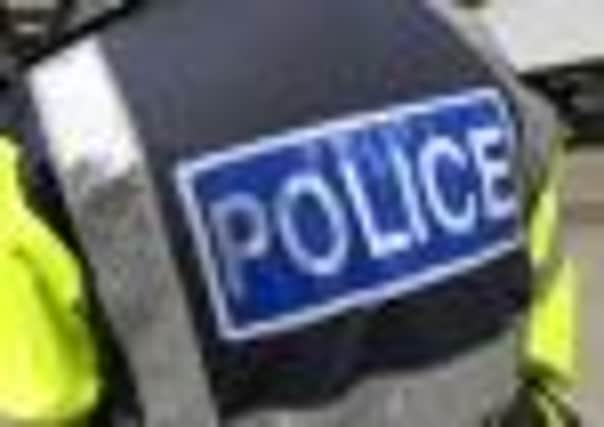Horsemeat scandal: Three men arrested at UK plants


The arrests were made at plants in Aberystwyth, Wales, and Todmorden, West Yorkshire, which were inspected on Tuesday by the Food Standards Agency (FSA) and became the first UK suppliers suspected of passing off horse as beef.
A police spokesman said: “At Farmbox Meats near Aberystwyth, Dyfed-Powys Police have arrested two men aged 64 years and 42 years, and in a simultaneous operation police arrested a man aged 63 at the Peter Boddy Slaughterhouse in Todmorden, West Yorkshire.”
Advertisement
Hide AdAdvertisement
Hide AdHe said the men were arrested on suspicion of offences under the fraud act and they would be interviewed by both police and the Food Standards Agency in what became yesterday a joint operation. Sources said the 64-year-old man arrested at Farmbox Meats was owner Dafydd Raw-Rees.
Asda last night became the latest British supermarket to withdraw products from its stores after tests revealed the presence of horse DNA in 500g jars of bolognese sauce.
The company apologised to customers and said it was taking a “belt-and-braces approach” by removing a further three beef products made by the same supplier, Greencore, as a precaution.
Sainsbury’s and the Co-op have confirmed they were also supplied by Greencore. Sainsbury’s said it was carrying out tests for the presence of horse DNA, but added that Greencore used a different beef supplier for its products.
The Co-op said Greencore supplied six pasta sauces to the company, but none of these included beef.
Meanwhile, FSA chief executive Catherine Brown said latest test results suggested that horsemeat contaminated with bute had been exported from the UK in “significant” amounts for some time.
The drug, banned in products for human consumption after causing severe toxic reactions in rare cases, has been detected in eight out of 206 dead horses tested by the agency at slaughterhouses across Britain.
Six from LJ Potter Partners at Stillman’s (Somerset) Ltd in Taunton, Somerset, had already been sent to France, where authorities from both sides of the Channel are now trying to trace them. The other two from High Peak Meat Exports Ltd in Nantwich, Cheshire, were intercepted and destroyed before leaving the abattoir.
Advertisement
Hide AdAdvertisement
Hide AdAnnouncing the results, Ms Brown revealed that the tests followed analysis last year sparked by intelligence from abattoirs suggesting bute was getting into meat products destined for the dinner table. Six per cent of a sample of around 60 carcasses analysed in 2012 tested positive for the painkiller, prompting the FSA to begin checking all horsemeat as the scandal unfolded, and leading to confirmation of the eight contaminated carcasses yesterday.
Asked whether it was fair to assume that 6 per cent, or 540, of the 9,000 horse carcasses exported from Britain every year contained bute, she replied: “That seems as reasonable a basis for making an estimate as any other.
“That would say there has been a significant amount of carcasses with bute going into the food chain for some time.”
Chief Medical Officer Dame Sally Davies said the health risk remained very low, and separate tests found no trace of bute in Findus products which were withdrawn after being found to contain up to 100 per cent horse.
Dame Sally said that although the drug was linked to side-effects in patients taking it as a medicine for arthritis, the risk was very low. “If you ate 100 per cent horse burgers of 250g, you would have to eat, in one day, more than 500 or 600 to get to a human dose,” she said.
The highest level of bute found in tests was 1.9 milligrammes per kilo of meat.
Opposition politicians accused the UK government of “catastrophic complacency” over the escalating crisis.
UK shadow environment secretary Mary Creagh, who alerted ministers to concerns last month, expressed “astonishment” that contaminated horsemeat may have been sent to France for human consumption. Addressing agriculture minister David Heath in the House of Commons, she said: “We must make sure horsemeat intended for humans is not contaminated with bute, it really is as simple as that. Why did you not act immediately when I raised this issue three weeks ago in this House?”
Advertisement
Hide AdAdvertisement
Hide AdBut the minister accused Ms Creagh of refusing to provide the source of her claims – that three British companies tried to pass off horsemeat as beef – unless the FSA gave her more details of results.
In Scotland, the SNP faced calls for an inquiry into the Scottish FSA. Writing in The Scotsman, Liberal Democrat MSP and former minister Tavish Scott, said: “We need an inquiry into just what the FSA has been doing in Scotland.
“Ever since the election, these quangos have been told to focus on independence and that means they have not been concentrating on their key task.”
Celebrity chef Nick Nairn joined the attack, urging authorities to “come clean” on what school dinners contain to reassure the public after a Glasgow factory was implicated, with tests suggesting pork may be present in Waitrose beef meatballs.
Most results from inspections at Scottish processing plants are expected to be completed by next Friday. Results from tests by retailers and suppliers which were ordered by the UK government to detect the presence of horsemeat are due today.
The UK government said it had instigated the “biggest investigation ever” into criminal activity in Europe over the scandal.
Suspicions turned from Romania to France where ministers were considering withdrawing French meat-processing company Spanghero’s licence after investigations suggested the firm had deliberately sold on horsemeat labelled as beef.